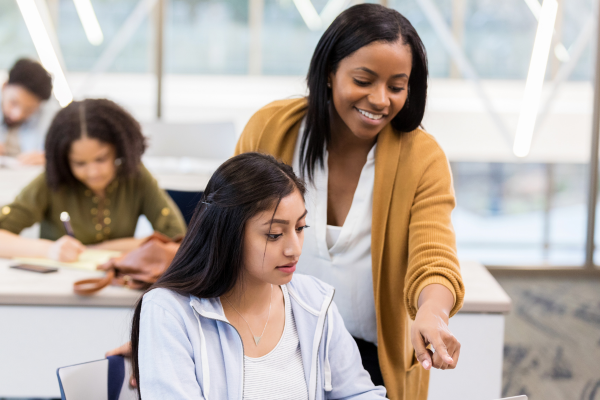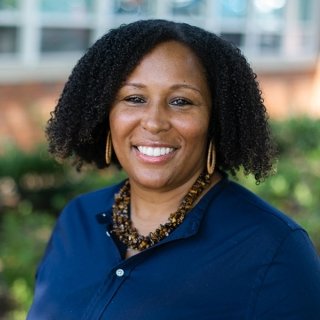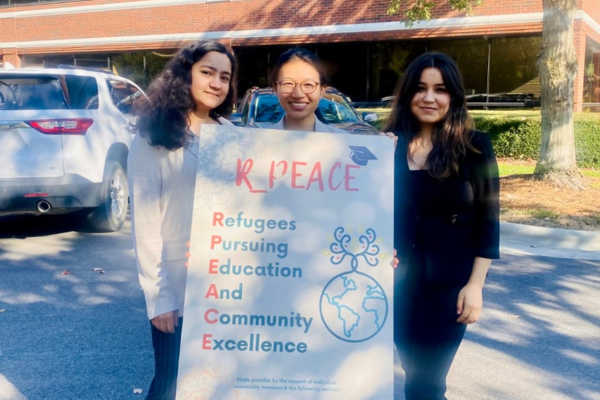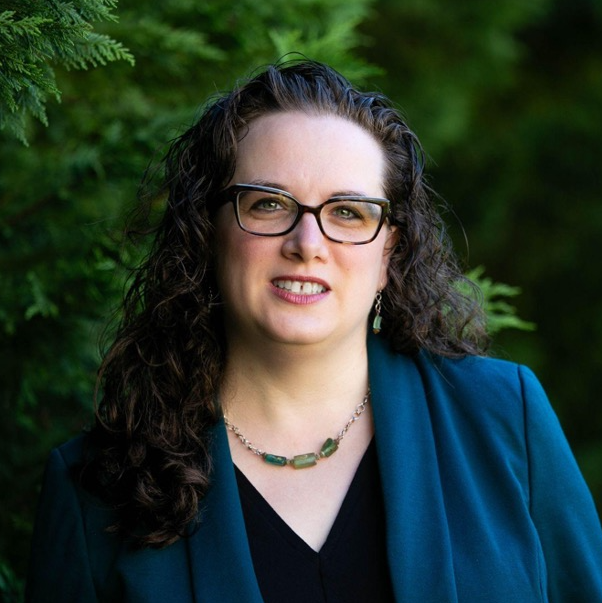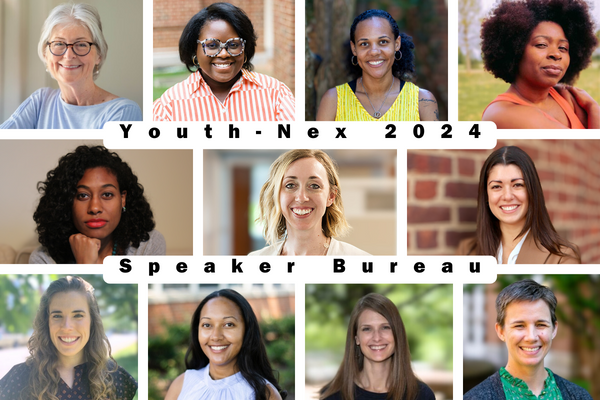
Youth-Nex is dedicated a) to providing a venue for scholars and practitioners whose work is furthering the goal of racial justice, b) to supporting developmental science that is not only anti-racist but is in the service of dismantling white supremacy, and c) to amplifying the voices and lived experiences of adolescents who have been marginalized.
Interested in having one of our scholars provide a talk or workshop to your organization in 2024-25? Start your planning now with our 2024 Speaker Bureau!
In alphabetical order, learn more below about Dr.s Tish Jennings, Wintre Foxworth Johnson, Seanna Leath, Channing Mathews, Irène Mathieu, Amanda Nguyen, Stefanie Sequeira, Ashlee Sjogren, Lora Henderson Smith, Julia Taylor, and Katy Zeanah.
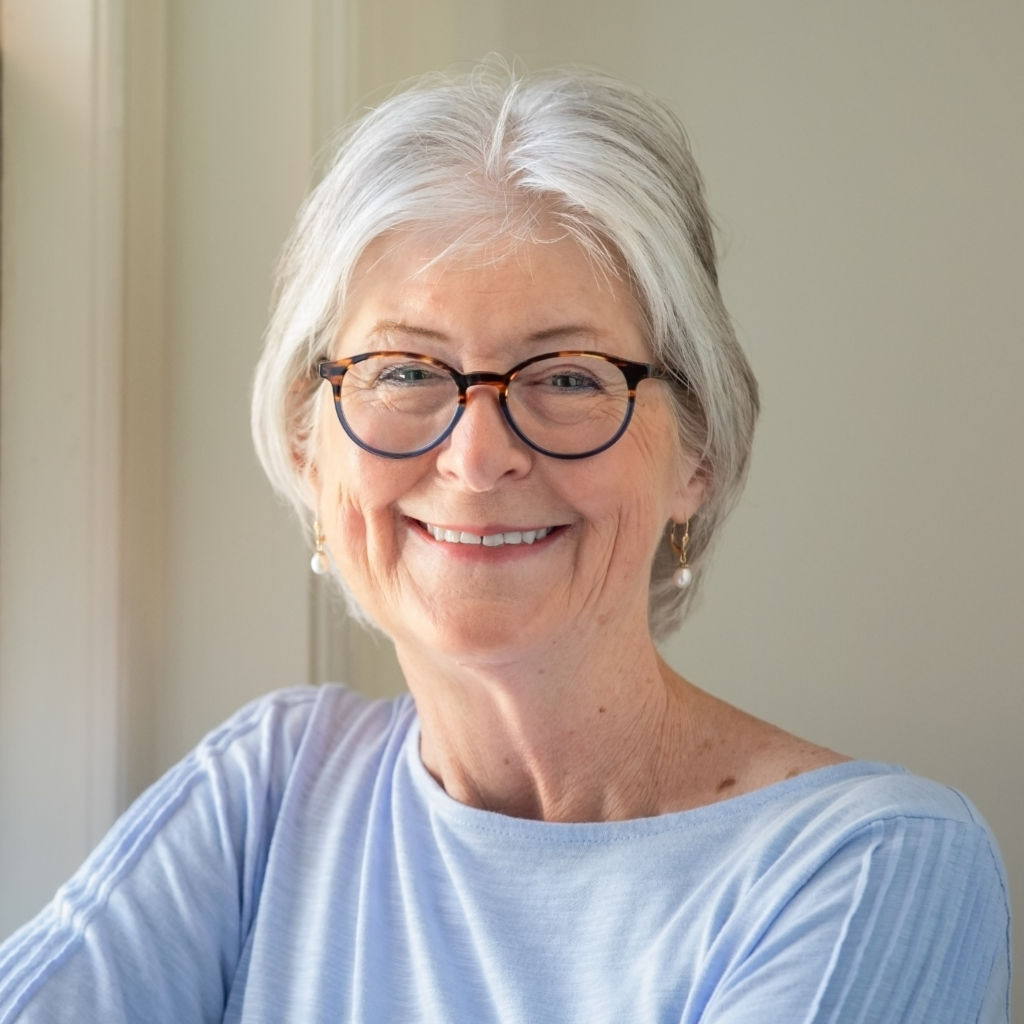
Patricia (Tish) Jennings, M.Ed., Ph.D.
Professor Jennings offers powerful workshops, captivating keynote addresses, and impactful webinars that tackle the pressing issues our schools confront today. Resilience, the ability to adapt to challenging situations without lasting harm, is now more crucial than ever for our students and educators. Teaching is fundamentally an emotional endeavor, with the social and emotional dynamics in the classroom playing a pivotal role in enhancing student learning and promoting positive behavior. Drawing on research from neuroscience, psychology, and education, Professor Jennings offers valuable insights into how mindfulness and compassion-based techniques, combined with instruction in emotional skills, can help educators manage the demands of the classroom, create a supportive learning environment, and rejuvenate the teaching and learning process. These adult skills can also be applied to support students facing trauma and adversity. In addition, Professor Jennings brings expertise in introducing mindful awareness and compassion practices to children and adolescents in developmentally appropriate ways, backed by evidence-based approaches.
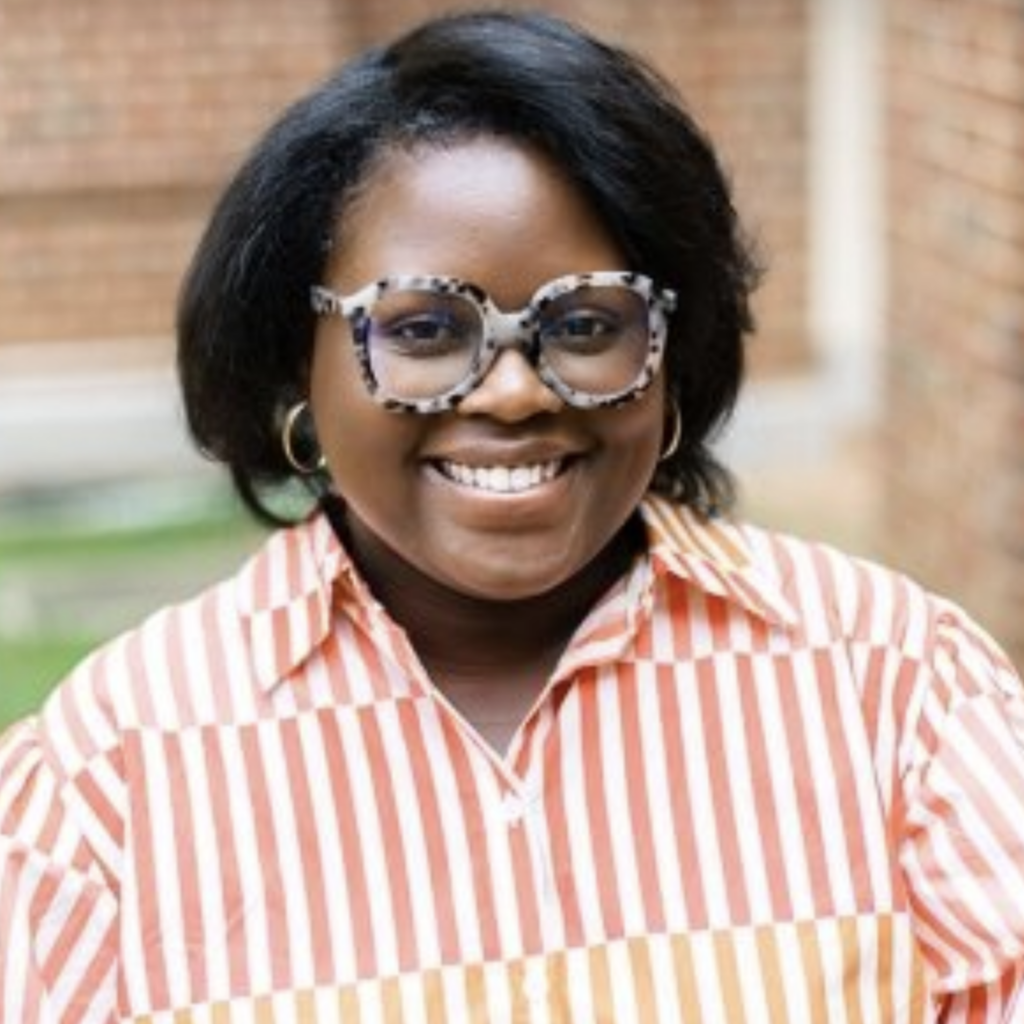
Wintre Foxworth Johnson, Ph.D.
Wintre Foxworth Johnson, Ph.D. is an Assistant Professor in the Department of Curriculum, Instruction, and Special Education. Prior to joining the School of Education and Human Development at the University of Virginia, Johnson served as a Teacher Leadership Coach (PreK-8) with the equity-focused policy and practice non-profit organization Teach Plus. She has extensive experience in teacher training and professional development, in particular, supporting educators in considering ways to translate culturally responsive and sustaining theories to practice in elementary school contexts; encouraging educators to excavate implicit biases, anti-Blackness, and other oppressive ideologies that inform their pedagogy; generating action-oriented dialogue that addresses the structural inequities that deleteriously affect marginalized students’ schooling experiences; and training preservice and inservice teachers to consider and enact pedagogical possibilities at the intersection of language arts and history instruction. One of her recent articles, published in the peer-reviewed journal Language Arts, is entitled “To Dream, to Fly, and to Be: Depictions of Black Livingness in Contemporary African American Children’s Literature”. Dr. Johnson earned her Ph.D. in Reading/Writing/Literacy from the University of Pennsylvania Graduate School of Education.
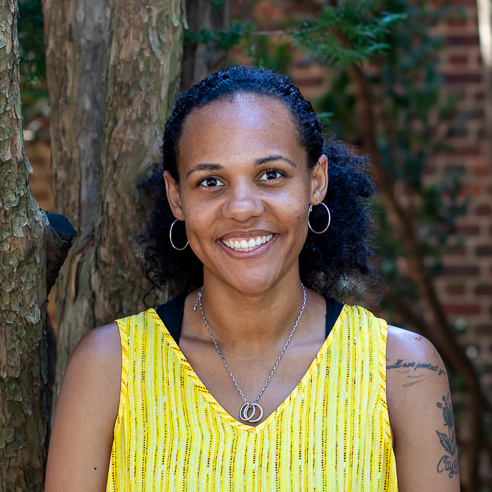
Dr. Seanna Leath
Dr. Seanna (Shawna) Leath (Leeth) is an assistant professor in the Psychological and Brain Sciences Department at Washington University in St. Louis. She directs the Fostering Healthy Identities and Resilience (FHIRE) Lab, which focuses on the holistic development and wellbeing of Black girls and women within their families, schools, and communities. Her research expertise includes identity development, gendered racial bias and discrimination, and cultural socialization processes in Black families. She has hosted workshops on Black women’s health and wellness, racial and gender inequities in higher education, and family-school partnerships for Black youth.

Dr. Channing Mathews (she/her/hers)
Ethnic-racial identity (i.e., the process and meaning associated with the role of ethnicity and race in one’s life) and critical consciousness (i.e., one’s awareness of social inequality and the tools, beliefs, and actions used to challenge inequity) are two processes that are salient in the development of Black and Latinx youth. Though both processes have demonstrated consistently positive outcomes across academic, socioemotional, and sociopolitical domains, little work examines how these two processes interact for these youth over time. I argue that we cannot fully understand the development of youth of color without investigating where ethnic-racial identity and critical consciousness processes intersect. Using my Integrated Model of Ethnic-Racial Identity and Critical Consciousness Development (Mathews et al., 2020), I examine how youth of color draw upon this process to find success and thriving within and beyond STEM contexts, with particular attention how ethnic-racial identity and critical consciousness promote activism throughout adolescence and adulthood.
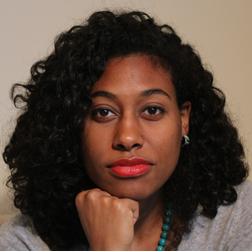
Irène P. Mathieu, MD, MPH (she/her/hers)
Dr. Irène Mathieu is a general pediatrician with experience in community-engaged research in both U.S. and international settings. She is currently the principal investigator of the Wellness And Youth Social action (WAYS) Lab at the University of Virginia, where she leads a team of adult and youth researchers focused on understanding and addressing the adolescent mental health crisis. Dr. Mathieu uses youth participatory action research (YPAR) as a core approach to her work. She is also an award-winning author of multiple poetry books and has experience teaching poetry to adolescents and adults. She has particular expertise in the use of literature to teach learners about health disparities and social determinants of health.
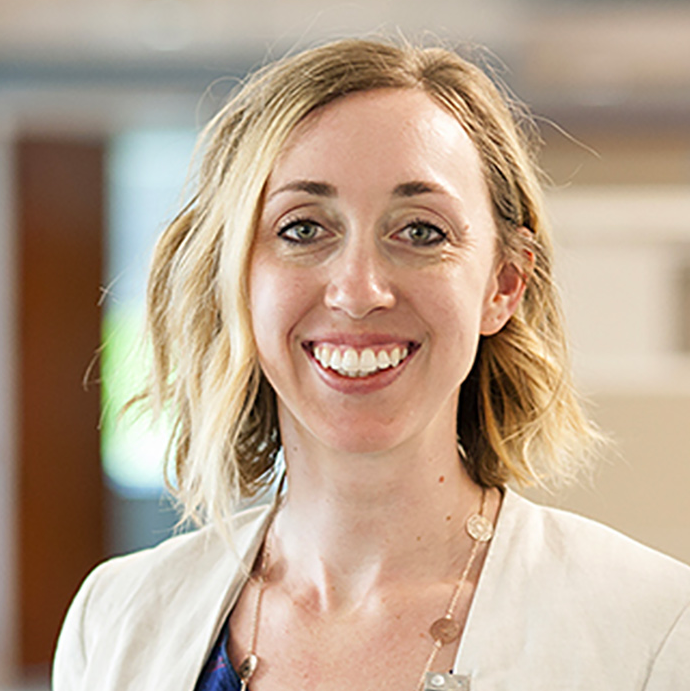
Dr. Amanda Nguyen
Dr. Amanda Nguyen is a Guerrant Global Health Equity Professor and Associate Professor at the University of Virginia (UVA). Her work focuses on design, implementation, and evaluation of mental health and psychosocial support interventions in global and rural settings. She regularly leads complex, community-engaged research partnerships and has particular expertise conducting mental health research in humanitarian and emergency settings. She would be delighted to speak on topics related to child protection and mental health in humanitarian response, global and rural mental health, community-engaged research, implementation science, and international program evaluation.
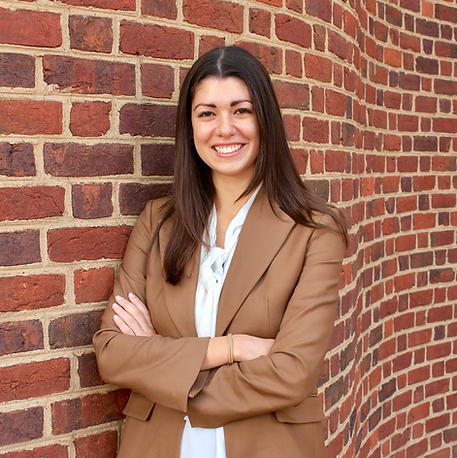
Stefanie L Sequeira, PhD (she/her)
Stefanie is an Assistant Professor in the Department of Psychology at UVA. Stefanie’s training is in clinical and development psychology, and she specializes in the study and treatment of affective psychopathology (e.g., anxiety, depression) in childhood and adolescence. Stefanie integrates multiple methods, including functional magnetic resonance imaging and ecological momentary assessment, to examine social threat and reward processes (e.g., neural responses to peer rejection or acceptance; self-reported social anhedonia) in adolescents with or at risk for anxiety, depression, and suicidal thoughts and behaviors. She would be excited to speak on topics related to adolescent mental health, adolescent peer experiences and social media, or developmental affective neuroscience.
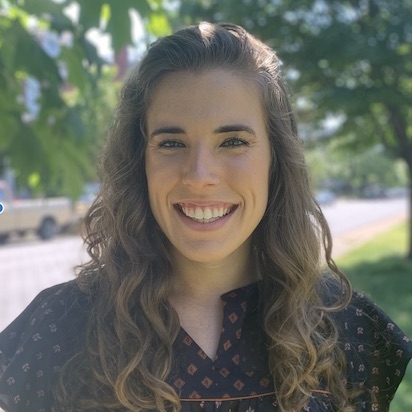
Dr. Ashlee Sjogren
Ashlee Sjogren is a research assistant professor in the Department of Leadership, Foundations and Policy and a faculty affiliate of Youth-Nex. Her research interests focus on equitable education and student engagement in out-of-school contexts. She regularly speaks on a variety of topics such as adolescent development, Out-of-school time systems, student motivation, and student voice. As an educational psychologist, she often brings a social context lens to understanding questions of equity, access, and motivation in our education systems. If these topics interest you, please reach out to have her join as a speaker.
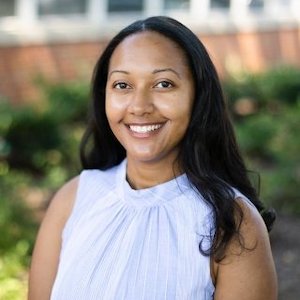
Dr. Lora Henderson Smith, Ph.D. (she/her/hers)
Dr. Lora Henderson Smith is an expert in school mental health and culturally responsive practices. She is available to provide expertise on supporting student mental health in schools. In particular, she is passionate about supporting students’ mental health needs as they return to school after mental-health related Emergency Department visits and hospitalizations. She also conducts community-based research in collaboration with Indigenous community partners and she is available to discuss this line of research and partnership.
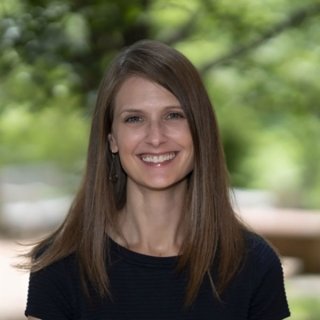
Julia V. Taylor, Ph.D.
Julia V. Taylor, Ph.D. is an Associate Professor of Counselor Education. Prior to academia, Julia worked as a school counselor and dean of student services in a variety of K-12 settings. During this time she supervised school counselors-in-training, developed district-wide counseling curricula, served on school and district-level teams, and authored several counseling-related books. She has delivered hundreds of presentations at the local, state, and national level to K-12 educators and currently speaks about 1) mental health literacy, 2) girls’ leadership development, 3) improving school counselors’ use of data, and 4) designing, implementing, and evaluating effective small group counseling services.
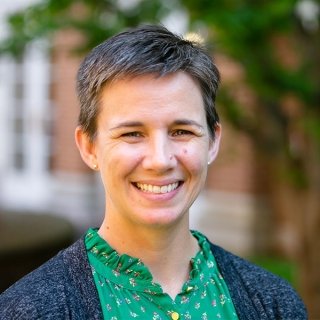
Dr. Katy Zeanah (she/her), PhD, LCP, NCSP
Katy is a Nationally Certified School Psychologist and Licensed Clinical Psychologist who has over 15 years of experience working in K-12 schools and mental health clinics. She has experience presenting to schools, community agencies, as well as local and national conferences.
As a certified trainer for the National Association of School Psychologists’ school crisis prevention and intervention training curriculum: PREPaRE, she helps schools develop crisis teams and safety plans that address mental health, physical health, and safety risk within the context of the school culture.
In addition, Katy is committed to increasing the availability of high-quality mental health services for students in school, particularly students who are at risk for mental health concerns and those who face barriers to receiving care. Her research has focused on the training and supervision of school-based mental health professionals, school-based mental health, and social justice in educational settings.
If you have any comments or questions about this post, please email Youth-Nex@virginia.edu. Please visit the Youth-Nex Homepage for up to date information about the work happening at the center.
